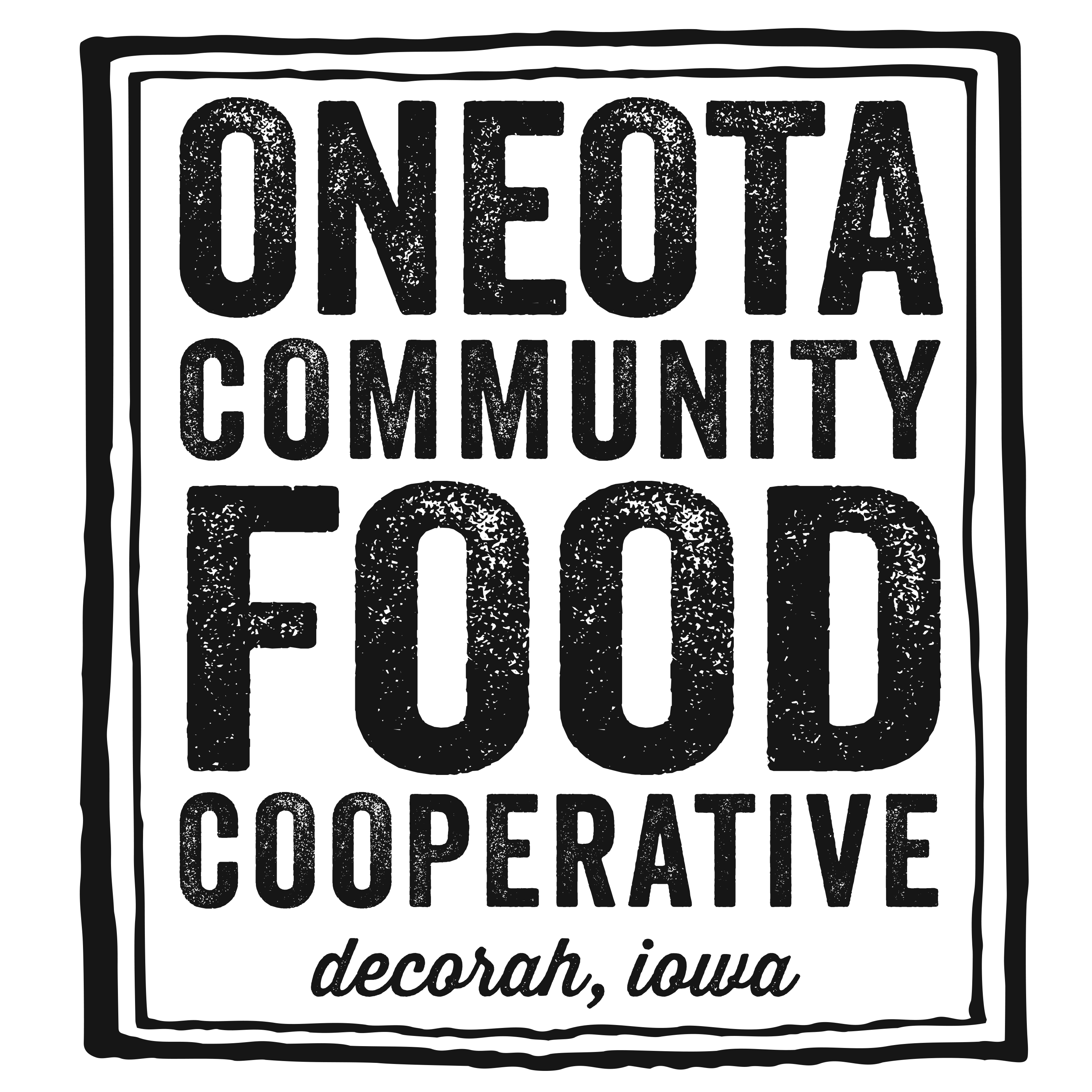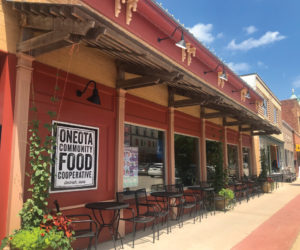By: Johanna Bergan, Education and Outreach Coordinator
Great minds think alike. Staff at the Oneota Community Co-op were tossing around ideas – how to promote healthy, vegetarian options to our meat loving customers. Customers were talking amongst themselves about how to get the Co-op to have more vegetarian options in the Deli. The comment box and my email inbox blew up with the same idea in the same week – let’s go meatless on Mondays.
This is not a new idea. In fact, Meatless Mondays is a national campaign developed at the John Hopkins’ Bloomberg School of Public Health in 2003. The campaign brought together four concepts: consumers respond to well-made marketing campaigns, historically; the United States has gone meatless before, in both World Wars our Presidents requested a lower meat consumption; the environmental impacts of reducing (not even eliminating) are huge; and most Americans could do with consuming more vegetables and leaner protein.
It is important to note that the campaign for Meatless Mondays is not about becoming vegetarian. Think of these days as an opportunity to take your taste buds on an adventure, a chance to try something new and fall in love with vegetables and beans and maybe even tofu. This is about eating in a more sustainable, heart-healthy manner and reducing carbon emissions along the way.
On Mondays, lunch at the Deli is exactly what you would expect – the delightfully unexpected – every day. Our daily challenge to our Deli Chefs: we provide the theme and you cook with local, organic ingredients to make an original lunch theme each day. The variety has proven popular among our members and customers. Just one new twist, each Monday the hot bar will be meat-free. Note that the Deli will continue to offer the option of oven-roasted, to-go chickens at 3:00 pm each day due to customer request.
Health Benefits:
*Reduce Heart Disease: Replace saturated fat (meat & dairy) with unsaturated fat (vegetable oil, nuts) and reduce heart disease by 19 %.1
*Fight Diabetes: Consuming more red meat increases the risk of type 2 diabetes.1
*Limit Cancer Risk: Diets high in fruits and vegetables reduce the risk of cancer.2
Environmental Benefits:
*Minimize Water Usage: 1800 – 2200 gallons of water are used per pound of beef (vs. 220 pounds for tofu produced in California).3
*Reduce Fossil Fuel Usage: 40 calories of fossil fuel energy go into one calorie of feed lot beef.4
*Reduce Carbon Emissions: UN estimates nearly 20 % of man-made emissions come from the meat industry.5
1. Mozaffarian, D. Micha, R. and Wallace, S. “Effects on Coronary Heart Disease of Increasing
Polyunsaturated Fat in Place of Saturated Fat.” March 2010. PLOS Medicine Journal.
2. D. Aune, G. Ursin, and MB Veierod. “Meat Consumption and the risk of type 2 diabetes.” 2009.
Diabetologia.
3. Physicians Committee for Responsible Medicine. “Meat Consumption and Cancer Risk.”
www.thecancerproject.org
4. Kreith, M., Water Inputs in California Food Production. 1991, Water Education Foundation:
Sacramento, CA.
5. Pimentel, D. and M. Pimentel, Sustainability of meat-based and plant-based diets and the
environment. American Journal of Clinical Nutrition, 2003.
6. “Livestock’s Long Shadow.” Food and Agriculture Association of the United Nations, Rome 2006.
Check out the movement at www.meatlessmondays.com and find more details on the health and environmental benefits listed above.



